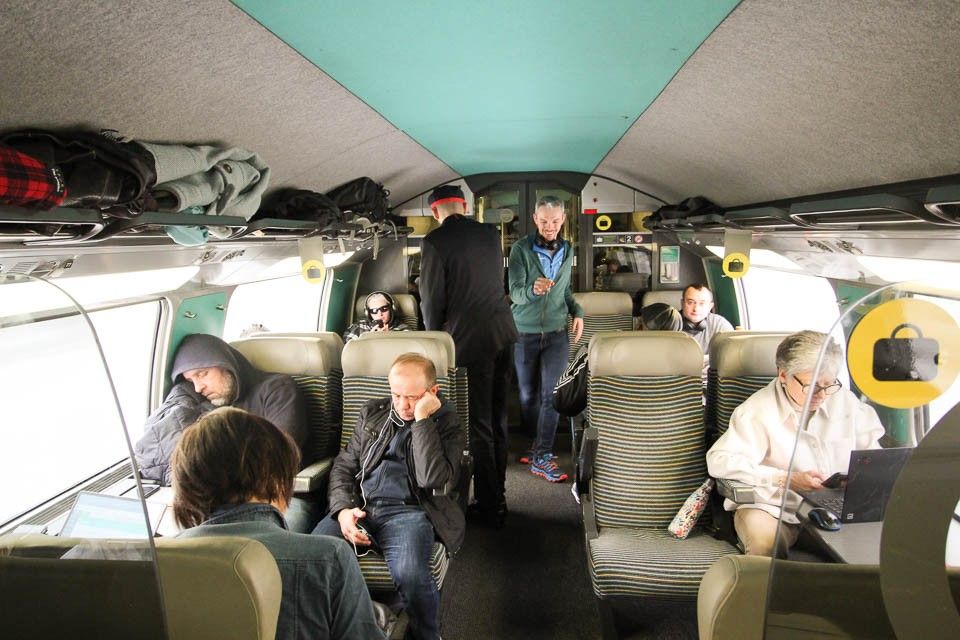Can you change names on train tickets?
Don’t be fooled by what train companies say about name changes. It doesn’t reflect what really happens on the ground.

Have you ever booked an apartment or a ski chalet for a group of friends, and then someone had to pull out of the trip?
This situation is not uncommon. It’s happened to me many times over the years. Normally, you find a friend to take their place.
But if you’ve already booked train tickets to the Alps by the time the person has pulled out, you might have an important question: can you change the name on a train ticket?
Spoiler alert: you can’t.
Insider tip: in practice, this doesn’t matter at all.
What to the train operators say, officially?
Eurostar
Eurostar’s FAQ says: ‘If someone else would like to travel, they'll need to book a new ticket.’ Here's the link to that page: https://help.eurostar.com/faq/be-en/question/Can-I-change-the-name-on-my-booking
That’s nice. What a waste of a ticket. But does it need to be?
Fortunately, the reality on the ground at odds with what Eurostar says. I’ve never seen Eurostar check names on tickets. You just scan your ticket on the machine to enter. Passport control is a totally separate process, and passport control only wants to see passports. On board Eurostar, staff don’t check tickets (because you’ve already scanned yours in to get entry to the departure lounge and platforms), let alone ask names.
I took a Eurostar in January 2023 and this was still the case. You could even visit and watch watch people scanning in their tickets – no names needed.
Perhaps if there was some problem with your ticket not scanning, and you had to show your ticket to a member of Eurostar staff so that they had to do something manually, they might see the name and if you were of a different gender to the name on the ticket, they might be funny about it. Never seen it happen though.
SNCF
According to SNCF’s website, you can’t change the name on an SNCF train ticket (https://www.sncf.com/en/customer-service/faq/booking-buying). SNCF’s page states that ‘The name cannot be changed. E-tickets are issued in the traveller’s name: they are personal and non-transferable.’
That’s what SNCF says officially. But in practice, do you really need to change the name on the ticket if Bob Jones is travelling instead of Laura Smith?
I’ve taken over 100 SNCF trains over the years, including two TGVs in January 2023. Do SNCF ticket inspectors ever ask to see your name or identity? I’ve never seen it happen.
Therefore, when SNCF says names can’t be changed, it is being very disingenuous to the traveller. Now, I can only speak from personal experience. But, as mentioned, I have plenty of it. Last month I followed an inspector on a TGV train specifically to watch him checking tickets (see pic above). As expected, the inspector checked tickets and asked no names of anyone.
So next time someone in my ski party has to pull out of a holiday and another friend takes their place, would it be a problem? Absolutely not, in my experience.
Rail Europe has a page explaining about nominative and non-nominative tickets:
https://help.raileurope.co.uk/article/40490-change-name-on-my-ticket
Trainline has a page on this too: https://support.thetrainline.com/en/support/solutions/articles/78000000454-can-i-change-the-name-on-the-ticket-
Both pages take the official line, of course, but don’t reflect the fact that you can simply scan or show your ticket and get on board.
Why do train companies prevent people changing names on tickets?
I’ve got no idea. Forcing people who can’t travel to waste their tickets is real shame. Seats are precious.
Train companies don’t even incentivise travellers tell them if they can’t go, so that the places aren’t wasted. Why don’t they offer at least a small proportion of the ticket in return for letting them know that you can’t make and that they can resell the seat? Maybe I’m missing something, but it doesn’t seem to make sense.
And I should add a disclaimer: this is not travel advice. I’m simply telling you about my personal experience in the hope that you find it useful to know, when researching information about rail travel.
